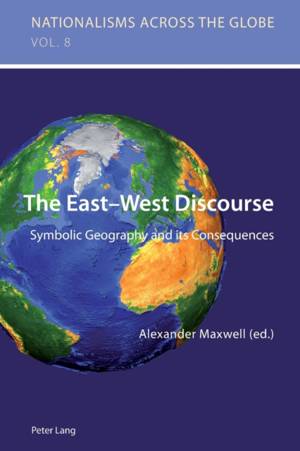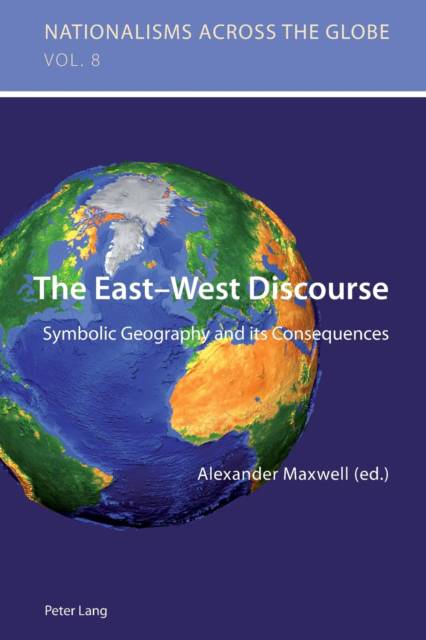
- Afhalen na 1 uur in een winkel met voorraad
- Gratis thuislevering in België vanaf € 30
- Ruim aanbod met 7 miljoen producten
- Afhalen na 1 uur in een winkel met voorraad
- Gratis thuislevering in België vanaf € 30
- Ruim aanbod met 7 miljoen producten
Zoeken
The East-West Discourse
Symbolic Geography and its Consequences
€ 133,95
+ 267 punten
Omschrijving
Political actors from many different countries locate their home country as a unique transition point between the East and the West. The terms east and west have become highly symbolic, yet also have a relative meaning, since every place is east of somewhere, and west of somewhere else. What gives this banal cliché such irresistible attraction? How does East-West symbolism interact with other symbolic geographies? This book examines East-West rhetoric in several different historical contexts, seeking to problematize its implicit assumptions and analyse its consequences, particularly in parts of Europe where political actors conflate local geography with symbolic Easts and Wests.
The various contributions to the book provide an overview of East-West discourses in scholarly writing; trace the medieval origins of European East-West symbolism; and discuss East-West discourses in nineteenth-century Germany, interwar Poland, Yugoslavia and Transylvania, twentieth-century Finland, Turkey in the late Cold War and post-Communist Belarus.
The various contributions to the book provide an overview of East-West discourses in scholarly writing; trace the medieval origins of European East-West symbolism; and discuss East-West discourses in nineteenth-century Germany, interwar Poland, Yugoslavia and Transylvania, twentieth-century Finland, Turkey in the late Cold War and post-Communist Belarus.
Specificaties
Betrokkenen
- Uitgeverij:
Inhoud
- Aantal bladzijden:
- 237
- Taal:
- Engels
- Reeks:
- Reeksnummer:
- nr. 8
Eigenschappen
- Productcode (EAN):
- 9783034301985
- Verschijningsdatum:
- 23/11/2010
- Uitvoering:
- Paperback
- Formaat:
- Trade paperback (VS)
- Afmetingen:
- 152 mm x 229 mm
- Gewicht:
- 326 g

Alleen bij Standaard Boekhandel
+ 267 punten op je klantenkaart van Standaard Boekhandel
Beoordelingen
We publiceren alleen reviews die voldoen aan de voorwaarden voor reviews. Bekijk onze voorwaarden voor reviews.







